Colleges
- American Athletic
- Atlantic Coast
- Big 12
- Big East
- Big Ten
- Colonial
- Conference USA
- Independents (FBS)
- Junior College
- Mountain West
- Northeast
- Pac-12
- Patriot League
- Pioneer League
- Southeastern
- Sun Belt
- Army
- Charlotte
- East Carolina
- Florida Atlantic
- Memphis
- Navy
- North Texas
- Rice
- South Florida
- Temple
- Tulane
- Tulsa
- UAB
- UTSA
- Boston College
- California
- Clemson
- Duke
- Florida State
- Georgia Tech
- Louisville
- Miami (FL)
- North Carolina
- North Carolina State
- Pittsburgh
- Southern Methodist
- Stanford
- Syracuse
- Virginia
- Virginia Tech
- Wake Forest
- Arizona
- Arizona State
- Baylor
- Brigham Young
- Cincinnati
- Colorado
- Houston
- Iowa State
- Kansas
- Kansas State
- Oklahoma State
- TCU
- Texas Tech
- UCF
- Utah
- West Virginia
- Illinois
- Indiana
- Iowa
- Maryland
- Michigan
- Michigan State
- Minnesota
- Nebraska
- Northwestern
- Ohio State
- Oregon
- Penn State
- Purdue
- Rutgers
- UCLA
- USC
- Washington
- Wisconsin
High Schools
- Illinois HS Sports
- Indiana HS Sports
- Iowa HS Sports
- Kansas HS Sports
- Michigan HS Sports
- Minnesota HS Sports
- Missouri HS Sports
- Nebraska HS Sports
- Oklahoma HS Sports
- Texas HS Hoops
- Texas HS Sports
- Wisconsin HS Sports
- Cincinnati HS Sports
- Delaware
- Maryland HS Sports
- New Jersey HS Hoops
- New Jersey HS Sports
- NYC HS Hoops
- Ohio HS Sports
- Pennsylvania HS Sports
- Virginia HS Sports
- West Virginia HS Sports
ADVERTISEMENT
You are using an out of date browser. It may not display this or other websites correctly.
You should upgrade or use an alternative browser.
You should upgrade or use an alternative browser.
Filters
Show only:
##### 2024 BIG EAST Prediction Contest: March 2-3 #####
- By shu09
- Pirate Hoops Chat
- 27 Replies
As we enter March, we have.....a ballgame! A 5-0 session this week moved @vegaspaul82 to 78-17 on the season, now within two games of @GrMtWoods with three sessions (15 games) remaining in the season. Our front runner has held the lead since the very first session back in mid-December. Will GrMtWoods shut the door, or will Paul continue to chip away? Three players are tied for third, four games behind. It's crunch time now.
Saturday, March 2
Butler (15-13, 7-11) @ DePaul (3-25, 0-17) - 12:00 PM - FS1 - Wintrust/Chicago
Villanova (16-12, 9-8) @ Providence (18-10, 9-8) - 12:00 PM - FOX - AMP/Providence
#5 Marquette (22-6, 13-4) @ #12 Creighton (21-8, 12-6) - 2:30 PM - FOX - CHI/Omaha
Xavier (14-14, 8-9) @ Georgetown (9-19, 2-15) - 7:30 PM - FS1 - CapOne/DC
Sunday, March 3
SETON HALL (18-10, 11-6) @ #3 Connecticut (25-3, 15-2) - 12:00 PM - CBS - Gampel/Storrs
Saturday, March 2
Butler (15-13, 7-11) @ DePaul (3-25, 0-17) - 12:00 PM - FS1 - Wintrust/Chicago
Villanova (16-12, 9-8) @ Providence (18-10, 9-8) - 12:00 PM - FOX - AMP/Providence
#5 Marquette (22-6, 13-4) @ #12 Creighton (21-8, 12-6) - 2:30 PM - FOX - CHI/Omaha
Xavier (14-14, 8-9) @ Georgetown (9-19, 2-15) - 7:30 PM - FS1 - CapOne/DC
Sunday, March 3
SETON HALL (18-10, 11-6) @ #3 Connecticut (25-3, 15-2) - 12:00 PM - CBS - Gampel/Storrs
Quick drive by
- By HallX2
- Pirate Hoops Chat
- 0 Replies
In the handshake line I’d imagine.
Danny savoring his payback. When does he put all his end of bench guys in?
Danny savoring his payback. When does he put all his end of bench guys in?
Another Maryland assistant becomes head coach
- By NYShoreGuy
- Pirate Hoops Chat
- 21 Replies
Mike Jones to ODU
This deserves its own post
- By Halldan1
- Pirate Hoops Chat
- 1 Replies
Andrew Alcorn just donated $2,500 to the challenge. I do not know Andrew personally but that's amazing.
That amount is the highest donation to date and deserves a special thank you from Mike, Seton Hall and myself.
Andrew you have done yourself and the Pirates proud.
That amount is the highest donation to date and deserves a special thank you from Mike, Seton Hall and myself.
Andrew you have done yourself and the Pirates proud.
Seton Hall at UConn
- By Halldan1
- Treasure Trove
- 16 Replies
3 CONNECTICUT
LOCATION Storrs, CT
CONFERENCE Big East
LAST SEASON 31-8 (.795)
CONFERENCE RECORD 13-7 (t-4th)
STARTERS RETURNING/LOST 2/3
NICKNAME Huskies
COLORS National Flag Blue & White
HOMECOURT Gampel Pavilion (10,167)
XL Center (15,564)
OFFICIAL WEBSITE UConnHuskies.com
COACH Dan Hurley (Seton Hall ’96)
RECORD AT SCHOOL 104-55 (5 years)
CAREER RECORD 255-160 (13 years)
ASSISTANTS
Kimani Young (UTEP ’98)
Tom Moore (Boston University ’87)
Luke Murray(Fairfield ’07)
WINS (LAST 5 YRS.) 16-19-15-23-31
KENPOM RATING (LAST 5 YRS.) 98-52-21-22-1
2022-23 FINISH Won NCAA championship.
LOCATION Storrs, CT
CONFERENCE Big East
LAST SEASON 31-8 (.795)
CONFERENCE RECORD 13-7 (t-4th)
STARTERS RETURNING/LOST 2/3
NICKNAME Huskies
COLORS National Flag Blue & White
HOMECOURT Gampel Pavilion (10,167)
XL Center (15,564)
OFFICIAL WEBSITE UConnHuskies.com
COACH Dan Hurley (Seton Hall ’96)
RECORD AT SCHOOL 104-55 (5 years)
CAREER RECORD 255-160 (13 years)
ASSISTANTS
Kimani Young (UTEP ’98)
Tom Moore (Boston University ’87)
Luke Murray(Fairfield ’07)
WINS (LAST 5 YRS.) 16-19-15-23-31
KENPOM RATING (LAST 5 YRS.) 98-52-21-22-1
2022-23 FINISH Won NCAA championship.
Who ya got
- By Halldan1
- Pirate Hoops Chat
- 27 Replies
I cannot see any scenario where the Pirates pull this out. My hope is just to be competitive. Heath will help but even healthy this is not a winnable game.
UConn 80
Seton Hall 64
UConn 80
Seton Hall 64
Onward Setonia Today- How you can help if you can't with $$'s
- By setonball46
- Pirate Hoops Chat
- 0 Replies
Can't make a donation? Here is a way to help free of charge.
Take my latest post on X/Twitter and repost it.
Login to view embedded media
Take my latest post on X/Twitter and repost it.
Login to view embedded media
There really are 3 tiers in BE.
- By Nbnylon
- Pirate Hoops Chat
- 8 Replies
Marquette playing without reigning POY and all BE Oguadala (2nd team) in a battle with Creighton at Creighton is showing me how far we really are from upper echelon. We had a few guys not feeling well and got destroyed at Creighton.
It really is UCONN, Marquette and Creighton, all others in 2nd tier except for Gtown and DePaul in a class by themselves.
It really is UCONN, Marquette and Creighton, all others in 2nd tier except for Gtown and DePaul in a class by themselves.
Awesome tv piece on bruce pearl
- By Seton75
- Pirate Hoops Chat
- 0 Replies
helped a kid with leukemia. Awesome bit. Go find the video.
now that is coaching!!!
now that is coaching!!!
Hoyas halftime lead
- By HallX2
- Pirate Hoops Chat
- 9 Replies
Is 12 over X. That would be a very bad loss
Gonzaga no longer with any bubble trouble
- By NYShoreGuy
- Pirate Hoops Chat
- 3 Replies
Just won impressively at saint mary's...3 quad 1 wins
Biden Shamed Into Consideration Of Executive Orders on Border In Election Year
- By ed odowd
- Life Off the Ship
- 4 Replies
Biden feeling the heat so he is considering reinstating some of the Trump type executive orders to control border.Maybe some of his defenders on this board will say he not a hypocrite he has simply evolved No worries lefties if he wins re-election he will cancel the orders.Maybe he will continue building the wall.AOC accusing him of Trump like behavior.What a heresy
Homefield Apparel
- By HallX2
- Pirate Hoops Chat
- 0 Replies
Makes college garb. Just ran a TV commercial showing various college logo items and closed with a girl in a Seton Hall tee. pretty neat. I’m taking that as a sign.
Villanova @ Providence
- By NYC Pirate
- Pirate Hoops Chat
- 45 Replies
We should root for Providence today in my opinion. Also, Marquette over Creighton. Third place would still be a reasonable chance should Marquette get that one. I think playing Providence in a 4/5 game would be advantageous.
NCAA makes major NIL decision after bombshell ruling
- By Halldan1
- Pirate Hoops Chat
- 4 Replies
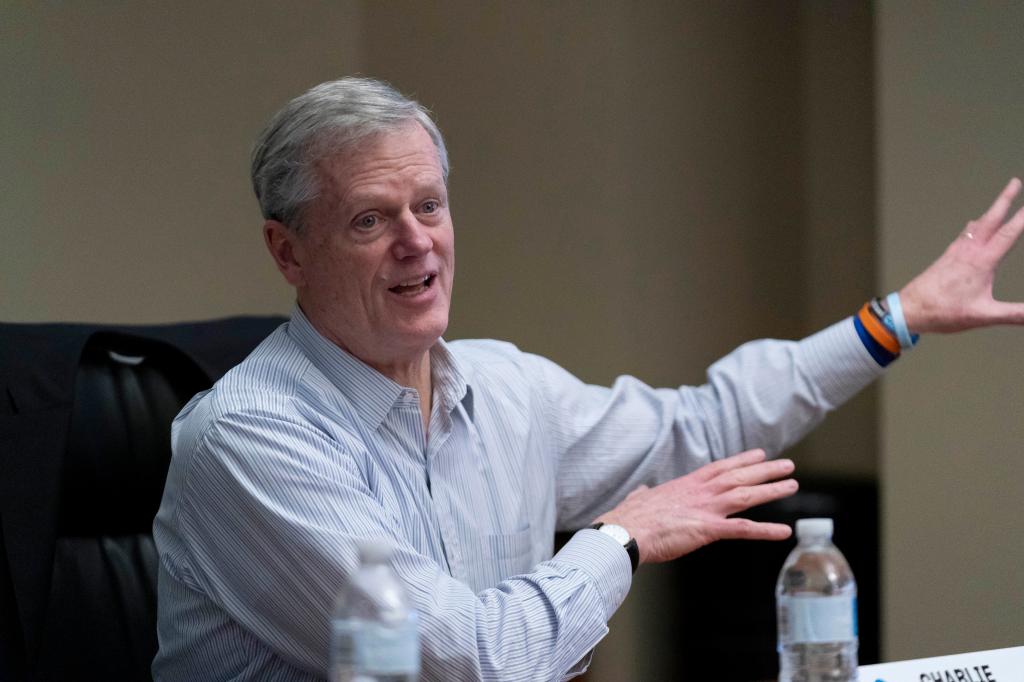
NCAA makes major NIL decision after bombshell ruling
A major NIL decision has forced the NCAA’s hand.
By Bryan Fonseca
A major NIL decision has forced the NCAA’s hand.
After another loss in the courtroom, the NCAA has decided to pause investigations regarding NIL collectives backed by boosters and their deals with Division I collegiate athletes.
NCAA President Charlie Baker issued a memo to member schools on Friday addressing the ruling.
This comes one week after a Federal Judge threw the NCAA into chaos with an antitrust suit going against NCAA rules and recruiting inducements.
The letter from Baker, obtained by the Associated Press, was intended “to pause and not begin investigations involving third-party participation in NIL-related activities.”
“There will be no penalty for conduct that occurs consistent with the injunction while the injunction is in place,” Baker wrote in the letter. “I agree with this decision, while the progress toward long-term solutions is underway and while we await discussions with the attorneys general. In circumstances that are less than ideal, this at least gives the membership notice of the board’s direction related to enforcement.”
Former attorney and college athletics administrator Joshua Lens added, “The NCAA is essentially saying we’re not going to do something that’s been deemed illegal.”
Lens later highlighted that Baker didn’t mention Congress in his Friday address.
“That’s fascinating to me because almost all of his statements in the past several months, if not longer, have been kind of this open plea to Congress to get involved,” Lens said. “Now, today, that wasn’t mentioned.”
“There will be no penalty for conduct that occurs consistent with the injunction while the injunction is in place,” Baker wrote in the letter, which was obtained by The Associated Press. “I agree with this decision, while the progress toward long-term solutions is underway and while we await discussions with the attorneys general. In circumstances that are less than ideal, this at least gives the membership notice of the board’s direction related to enforcement.”
$20,250 contributed in 14 days - 115 supporters and counting. GO PIRATES!!!
- By walshtrips
- Treasure Trove
- 25 Replies
Every dollar contributed is doubled up to $25K. Let's give Sha the support he needs to succeed.
Thanks for your consideration and Support!!!
Thanks for your consideration and Support!!!
March Madness Pool
- By SOBO1
- Treasure Trove
- 16 Replies
Wanted to let everyone know that I will be running the pool again this year for all that are interested. Please feel free to share with friends and family. Each year we've gotten more and more participation and I hope this year is no different. I will post official pool details in the coming days:
2021: 23 entries $1,150 prize pool
2022: 32 entries $1,600 prize pool
2023: 39 entries $1,950 prize pool
Total raised for PirateBlue: $940+
2021: 23 entries $1,150 prize pool
2022: 32 entries $1,600 prize pool
2023: 39 entries $1,950 prize pool
Total raised for PirateBlue: $940+
Seton Hall Heads To Storrs To Take On No. 3 UConn
- By Halldan1
- Pirate Hoops Chat
- 0 Replies
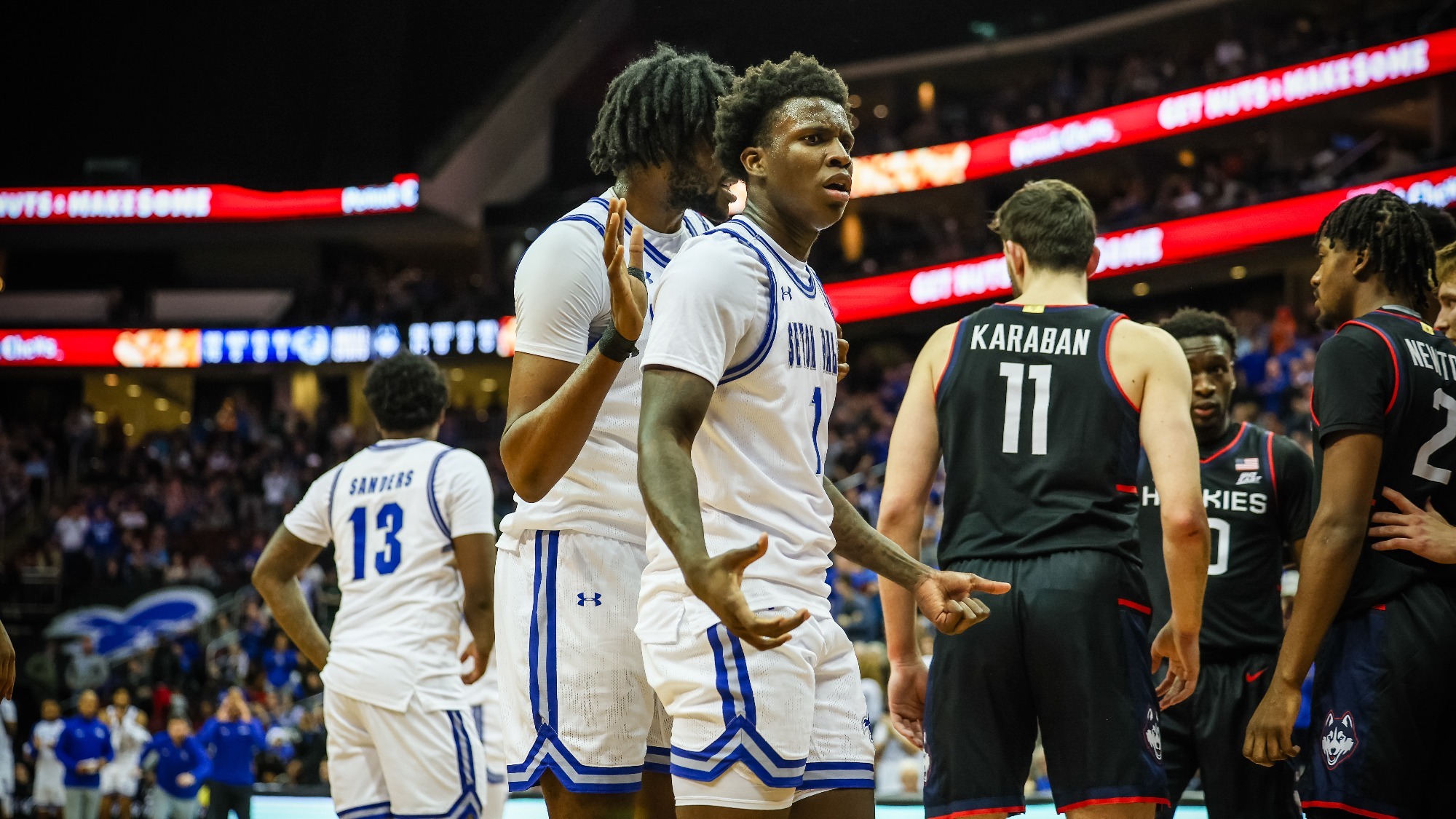
Seton Hall Heads To Storrs To Take On No. 3 UConn - Seton Hall University Athletics
Winners of five of its last seven games, the Seton Hall men's basketball team concludes its stretch of back-to-back road games against two top 12 teams on Su...
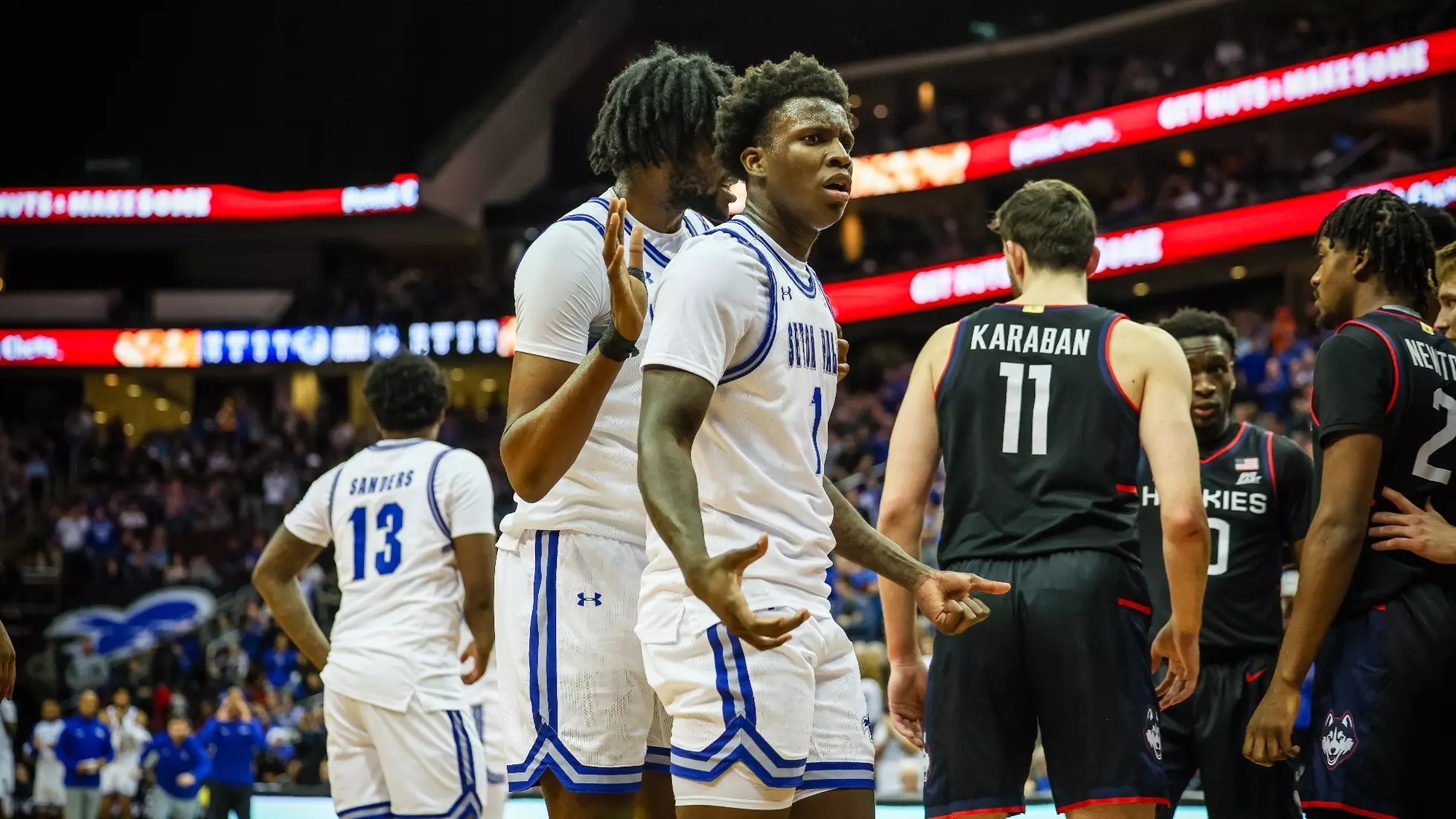
Game 29: No. 3 UConn Huskies (25-3, 15-2 BIG EAST) vs. Seton Hall Pirates (18-10, 11-6 BIG EAST)
Sunday, March 3 • Storrs, Conn. • Gampel Pavilion (9,882) • 12 p.m.
TV: CBS • Ian Eagle, Bill Raftery & Tracy Wolfson
Web: cbssports.com/watch/college-basketball
Radio: SHU Pirates Mobile App / Pirate Sports Network / SiriusXM 380 / SXM App / Gary Cohen & Dave Popkin
Game Notes: Seton Hall | UConn
Follow Along: Instagram | X | Live Stats
Notes You Need To Know
- Winners of five of its last seven games, the Seton Hall men's basketball team concludes its stretch of back-to-back road games against two top 12 teams on Sunday at No. 3 UConn.
- Picked to finish ninth out of 11 teams in the BIG EAST preseason poll, the Pirates are in sole possession of fourth place in the BIG EAST standings at 11-6.
- Seton Hall has posted at least nine BIG EAST wins the last nine seasons, the longest stretch in program history.
- Seton Hall's eight 10-win seasons since realignment in 2013-14 is tied for second in the BIG EAST:
1. Villanova - 10
2. Seton Hall - 8
Creighton - 8
Providence - 8
5. Marquette - 5
- After posting the best season by a first-year head coach in program history, Shaheen Holloway is once again raising the bar for Seton Hall head coaches as he now owns the most wins and BIG EAST victories by a head coach in his first two seasons.
1. Shaheen Holloway (2022-24) - 35 1. Shaheen Holloway - 21
2. Kevin Willard (2010-12) - 34 2. Tommy Amaker - 17
3. Tommy Amaker (1997-99) - 30 3. Louis Orr (2001-03) - 15
Richie Regan (1960-62) - 30 Kevin Willard - 15
- Holloway is one of only eight coaches in BIG EAST history to win 10 BIG EAST games in each of his first two seasons, joining Bob Huggins (West Virginia), Jamie Dixon (Pitt), Mike Brey (Notre Dame), Paul Evans (Pitt), Buzz Williams (Marquette), Mike Jarvis (St. John's) and Chris Holtmann (Butler).
- Kadary Richmond was one of 40 Div. I players named to the Oscar Robertson Trophy and All-America Watch List on Tuesday.
- In six career games against UConn, Richmond is shooting 51 percent from the floor and averaging 15.8 ppg, his most PPG against any opponent (minimum 4 games).
- Dre Davis is making a case for being the BIG EAST's Most Improved Player of the Year as he's gone from averaging 18.8 minutes and 9.6 points per game last season to 31.8 minutes to 14.2 points per game this season.
- Jaden Bediako ranks second in the BIG EAST and seventh in Division I averaging 3.9 offensive rebounds per game.
- The Pirates are 16-5 this season when Al-Amir Dawes scores in double figures and 7-2 when he's the team's leading scorer.
Monmouth County Game Watch- Uconn Game
- By setonball46
- Pirate Hoops Chat
- 5 Replies
Weekend preview: Impact of injuries being felt entering March
- By Halldan1
- Pirate Hoops Chat
- 1 Replies
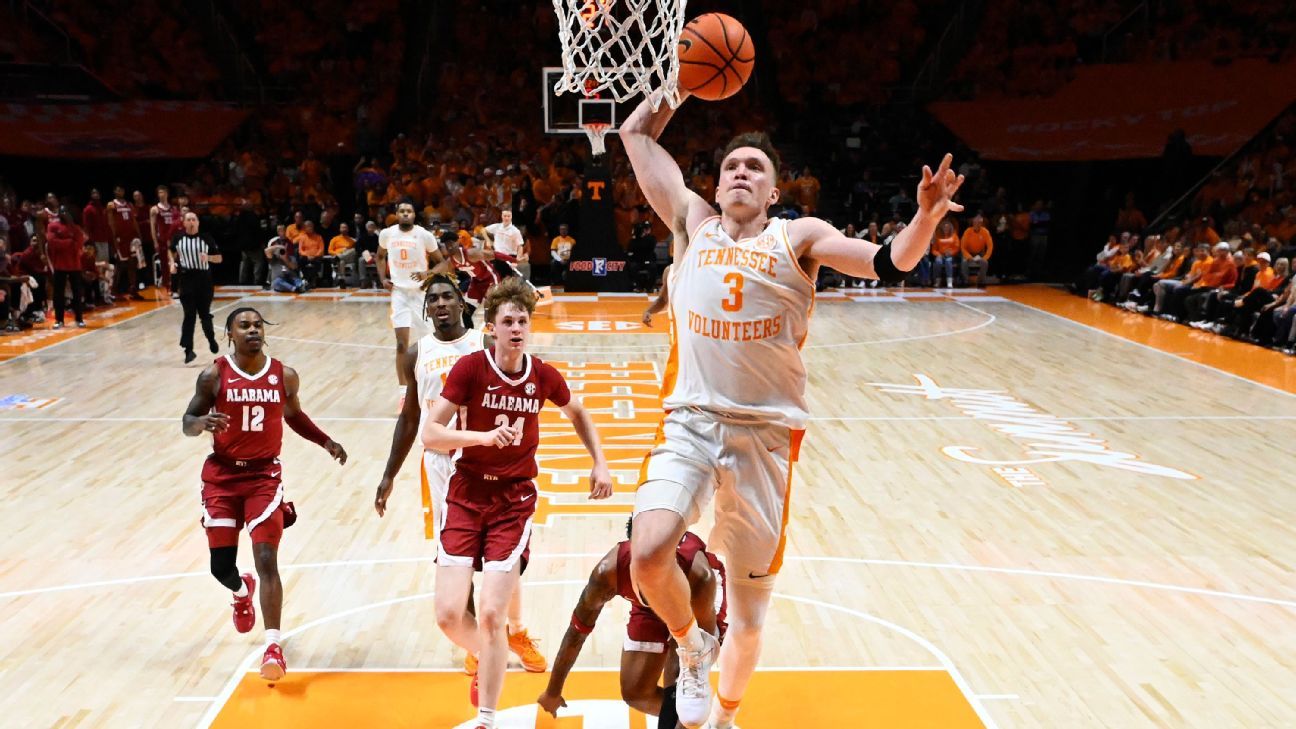
Weekend preview: Impact of injuries being felt entering March
Myron Medcalf discusses injury issues for championship hopefuls and picks a winner from a handful of the most important games this weekend.
No. 5 Marquette Golden Eagles (22-6, 13-4 Big East) at No. 12 Creighton Bluejays (21-8, 12-6)
Saturday, 2:30 p.m. ET, FOXIn the two games prior to Wednesday's 91-69 win over Providence -- victories over DePaul and Xavier -- Tyler Kolek recorded 28 assists and three turnovers. The Golden Eagles are a more fluid team when the potential All-American and NBA prospect is both a potent scorer and effective distributor. Marquette is 12-1 when Kolek finishes with at least eight assists in a game this season. He has averaged 5.6 APG and 2.8 turnovers per game in Marquette's six losses. In his team's lopsided loss at UConn last Saturday, he finished with three assists and four turnovers. It's no secret whom Creighton will attempt to stall in this matchup ... but only if Kolek is available. He left Wednesday's game with an oblique injury. If he can't go, everything changes. Even a fully healthy team would have a challenge with this Creighton squad.
Ryan Kalkbrenner (17.1 PPG, 2.9 BPG) has been a force on both ends of the floor for Creighton. But the Bluejays, who take 3-pointers on nearly half of their field goal attempts, can get disrupted by their volume shooting. After a big win over UConn last week, they shot 6-for-26 from beyond the arc in a 14-point road loss to St. John's on Sunday. Then, that same group hit 41% of its 3-point attempts in a Wednesday victory over Seton Hall. Kolek or not, Marquette will have its hands full with this Creighton squad.
Medcalf's pick: Creighton, 86-80; Against the spread: Creighton (-4.5)
Gilbert Homers Twice, Drives in Six on Day One at FIU Classic
- By Halldan1
- Pirate Hoops Chat
- 0 Replies
Gilbert Homers Twice, Drives in Six on Day One at FIU Classic - Seton Hall University Athletics
Miami, Fla. – Olivia Gilbert (Johnston, R.I.) hit a pair of home runs and drove in six as Seton Hall took care of North Dakota, 8-4, in game one of the...
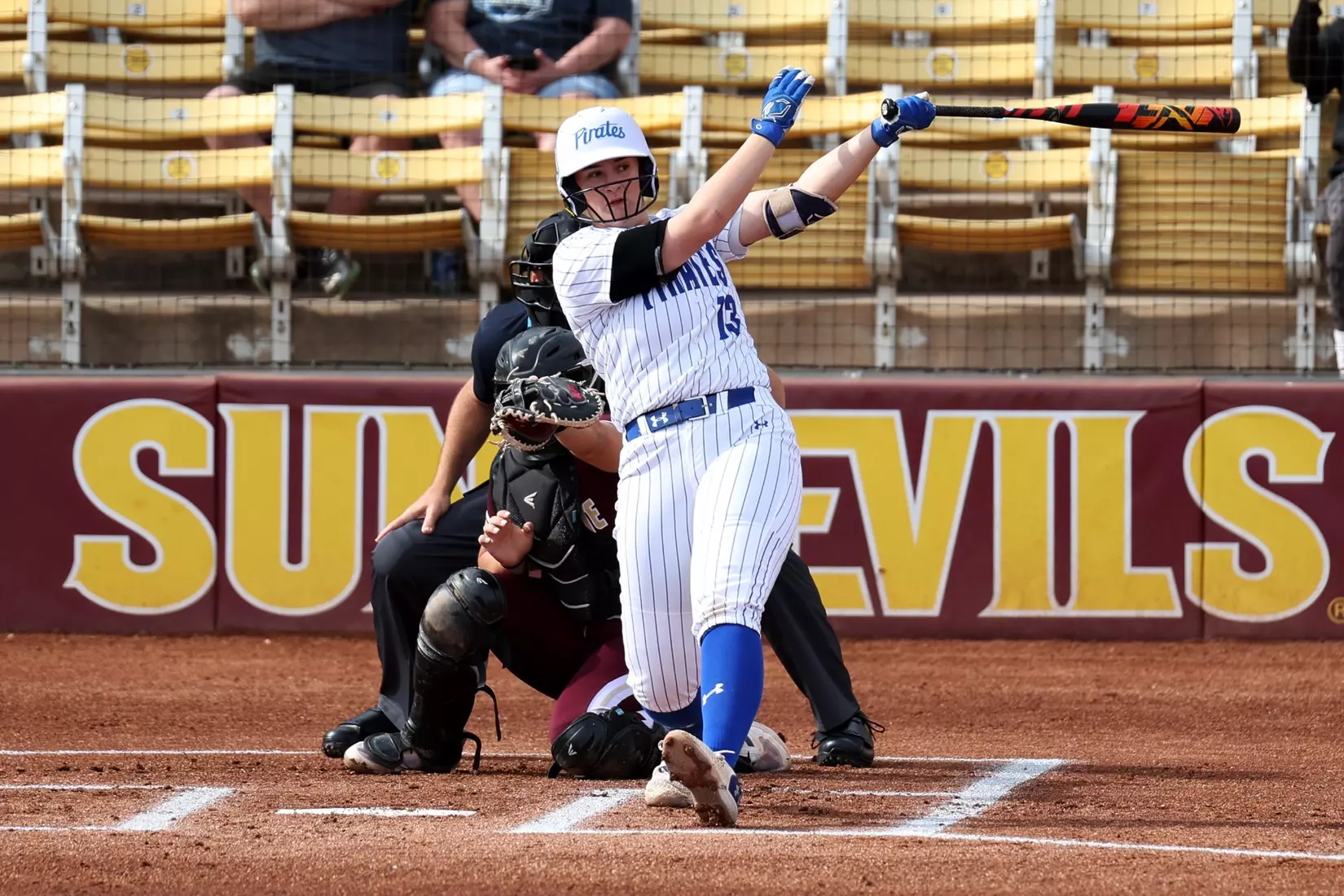
Miami, Fla. – Olivia Gilbert (Johnston, R.I.) hit a pair of home runs and drove in six as Seton Hall took care of North Dakota, 8-4, in game one of the FIU Classic on Friday. The Pirates nearly had a perfect start to the weekend, but a four-run rally by FIU in game two of the day handed Seton Hall a 6-5 defeat.
Game 1: Seton Hall 8, North Dakota 4
How it Happened
- The Pirate bats got to work quickly, as Katey Brennan (Yardley, Pa.) put the Pirates on the board with an RBI single in the top of the first.
- North Dakota answered back in the second inning with a four spot to take a 4-1 lead.
- Gilbert began Seton Hall's offensive charge, hitting a two-run home run to left field to make it a one-run game in the third.
- One inning later, Gilbert would bring home another run on an RBI single to score Taylor Hill (Little Falls, N.J.) with the tying run.
- In the fifth, Caroline Hobbes (Bay Shore, N.Y.) would put The Hall ahead for good with an RBI single.
- Gilbert would add some insurance in the sixth, clubbing a three-run home run to make it an 8-4 game.
- Gilbert's multi-home run game is the first of her career and the second for the Pirates so far this season.
- This is Gilbert's fourth-career three-hit game.
- Kelsey Carr (Ridgewood, N.Y.) collected a base hit, score two runs and drew three walks in the game.
- Sydney Babik (Gilbert, Ariz.) picked up the win in the circle, pitching all seven innings and allowing just two base hits.
How it Happened
- For the second straight game, Brennan got the Pirate bats going early. Her two-run single in the first inning score Gilbert and Lela Allen (Phoenix, Ariz.).
- FIU got on the board with a run on an infield single in the second inning to make it a 2-1 game.
- The Pirates stretched their lead in the fifth, as Hill and Carr had back-to-back RBI singles followed by a bases loaded walk by Erin Howard (Skillman, N.J.) to grow the lead to 5-1.
- FIU came back with a run in the fifth and four runs in the sixth to take the victory.
- Brennan picked up two hits in both games on Friday, the first two-hit games of her career.
- Each of the top six batters in the Seton Hall order collected at least one base hit.
The Pirates will play two more games on Saturday at the FIU Classic, starting with UIC at 10 a.m. and once again at 3 p.m.
Load more
ADVERTISEMENT
Filter
ADVERTISEMENT